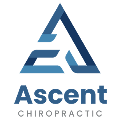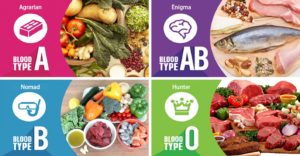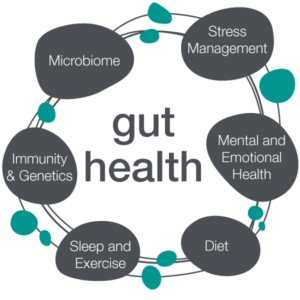So what fats and oils should we be eating anyway?
by Mike Eyres, Naturopath
Here at My Remedy we love fats and oils. We love eating it, we love prescribing it and we love improving people’s ability to digest, absorb and metabolize fats and oils well. With the recent controversy regarding dietary fats and oils in the media we thought we would give you our honest, holistic, and practical view of which fats and oils to use in your home.
One of the most confusing aspects for consumers regarding the big fat debate is that it is usually reduced to a discussion on what types of fatty acids we should be eating. The problem is that most real whole foods tend to be a mixture of fatty acids. Take fresh salmon for example, often touted as being full of healthy polyunsaturates including omega 3’s, can have up to 30% of it’s fat being saturated (Blanchet et al., 2005).
So, whilst scientific discussions regarding fatty acid consumption levels are useful on a population scale, they are almost useless when applied to the clinical settling where we are looking at individual people.
The short answer for most of us regarding food is that we should be eating real food instead of processed packaged foods and takeaways. By eating a diet rich in whole foods you automatically consume less bad fats like trans fats, less pro-inflammatory cheap vegetable oils, and increase your intake of healthy oils.
Unless you avoid specific foods out of choice or necessity we recommend a varied diet focused on whole food sources of fats and oils including fish, avocados, dairy, meat, eggs, nuts and seeds and using extra virgin olive oil as the primary source of added oil.
Food preparation methods
If we really want to be heart healthy with our oils, we really need to shift our food preparation methods to using lower temperatures and getting away from frying in oil except on special occasions. This is because the chemical products produced by frying such as aldehydes and advanced glycation end products (AGES) are bad for our health when consumed regularly over a long period of time (Chen & Smith, 2015).
Stir-frying with water, using a slow cooker, and grilling or baking at lower temperatures (under 180C) are good options to try. Healthy oils can then be added towards the end of cooking. Fats and oils used this way help to improve the taste of the food and to improve the absorption of vitamins and phytonutrients from the food without damaging the oil (Mashurabad, Palika, Jyrwa, Bhaskarachary, & Pullakhandam, 2017).
The healthiest oil
In our opinion, fresh local extra virgin olive oil is the healthiest oil to use as added oil in the diet (Ros et al., 2014). Whist we have nothing against the use alternatives such as ghee, coconut, lard, and duck fat, which are all delicious, they have less convincing evidence for health promoting properties and should be considered as specialty culinary fats and oils to be used for their functionality and flavour profile over their health properties. Extra Virgin Olive Oil is cardioprotective through positive influences on blood pressure, blood glucose, and on serum cholesterol (Silva et al., 2015).
Using Extra Virgin Olive Oil
Quality and freshness of extra virgin olive is vital for its functionality with regard to cooking. The reputation that olive oil is “destroyed” by heat is due to the poor quality of the oils that have been imported historically. In actual fact fresh high quality olive oil is perfectly suited for cooking so long as the heat is moderate, short lived and the oil is not heated above its smoke point.
New Zealand makes some of the best olive oils on the planet and they are worth the extra money. Some producers are offering quite reasonable prices for online sales of larger format containers so shop around or visit your local olive oil producer and ask them if they sell oil in 1L or 3L cans.
The Table below clearly illustrates the benefit of choosing New Zealand oils versus imported ones with regard to stability and smoke point.
Table comparing local olive oil to imported and smoke point.
Oils to fry with
So what about frying you still ask? Sometimes you just need to make fish and chips right? Being holistic means we recognize that the relationship between food and health is about more than the nutrients or toxins involved. Sometimes you just need some soul food and to enjoy it with a group of friends with some good conversation and a glass of wine. right?
On these occasions when do not want to use your expensive olive oil we would recommend using refined olive oil or refined avocado oil over the cheap industrial seed oils found in plastic bottles on the supermarket shelf (Canola, sunflower, rice bran). These oils are easily damaged by heat and may promote inflammation by being high in omega 6 fatty acids (Jandacek, 2017).
With regard to saturated fat, moderate amounts of coconut oil or animal based fat such as butter, ghee, lard or tallow are unlikely to cause you any harm when consumed in the context of a healthy diet rich in fruits and vegetables and low in refined carbohydrates. So relax, enjoy these foods without feeling bad about it. Saturated fat is in fact quite good to cook with as it tends to be quite stable, just don’t eat it too much of it (Choe & Min, 2007).
Matching Fats and Oils with people using Hemaview blood screening
Different people vary significantly in their reactions to different fats and oils. This is due to factors including people’s ancestry, the health of their microbiome, and the health of their liver.
If you have any doubts about whether your diet is suiting your metabolism or especially if you are experiencing digestive troubles when consuming fats or oils please come and see us at MyRemedy.
The combination of a full naturopathic consult with hemaview live blood screening gives a great picture of how your body is coping with the fats in your diet and how it is affecting your health.
You can literally see the fat in your blood and how healthy your blood cell membranes look on screen. How cool is that?
In Summary
- Eat whole foods rich in good oils every day without worrying too much about it.
- Make New Zealand Extra virgin olive oil your first choice as an “added oil”.
- Don’t be afraid of occasional to moderate use of other culinary oils including saturated animal fats.
- Get away from using the frying pan and embrace techniques that use slower cooking times at lower temperatures.
- Eat deep fried foods and foods cooked in refined vegetable oils rarely or not at all.
- Book in for a naturopathic consult including hemaview live blood screening at MyRemedy to check if the dietary fats and oils in your diet are right for you.
References
Blanchet, C., Lucas, M., Julien, P., Morin, R., Gingras, S., & Dewailly, E. (2005). Fatty acid composition of wild and farmed Atlantic salmon (Salmo salar) and rainbow trout (Oncorhynchus mykiss). Lipids, 40(5), 529-531.
Chen, G., & Smith, J. S. (2015). Determination of advanced glycation endproducts in cooked meat products. Food Chem, 168, 190-195. doi: 10.1016/j.foodchem.2014.06.081
Choe, E., & Min, D. B. (2007). Chemistry of deep-fat frying oils. J Food Sci, 72(5), R77-86. doi: 10.1111/j.1750-3841.2007.00352.x
Jandacek, R. J. (2017). Linoleic Acid: A Nutritional Quandary. Healthcare (Basel), 5(2). doi: 10.3390/healthcare5020025
Mashurabad, P. C., Palika, R., Jyrwa, Y. W., Bhaskarachary, K., & Pullakhandam, R. (2017). Dietary fat composition, food matrix and relative polarity modulate the micellarization and intestinal uptake of carotenoids from vegetables and fruits. Journal of Food Science and Technology, 54(2), 333-341. doi: 10.1007/s13197-016-2466-7
Ros, E., Martinez-Gonzalez, M. A., Estruch, R., Salas-Salvado, J., Fito, M., Martinez, J. A., & Corella, D. (2014). Mediterranean diet and cardiovascular health: Teachings of the PREDIMED study. Adv Nutr, 5(3), 330s-336s. doi: 10.3945/an.113.005389
Silva, S., Combet, E., Figueira, M. E., Koeck, T., Mullen, W., & Bronze, M. R. (2015). New perspectives on bioactivity of olive oil: evidence from animal models, human interventions and the use of urinary proteomic biomarkers. Proc Nutr Soc, 74(3), 268-281. doi: 10.1017/s0029665115002323






